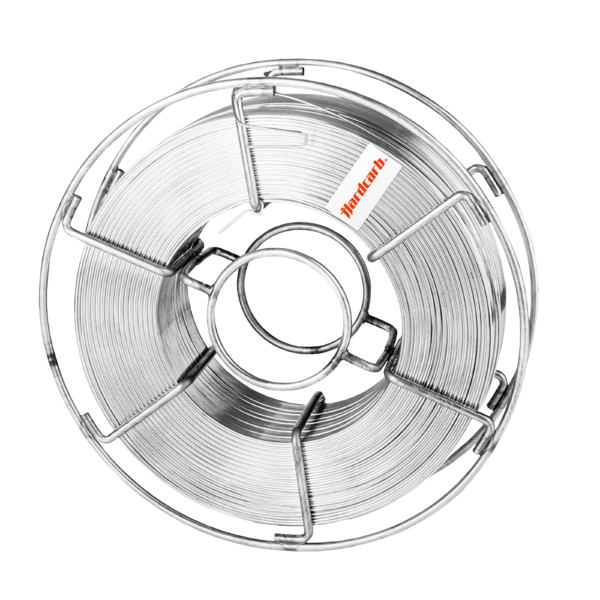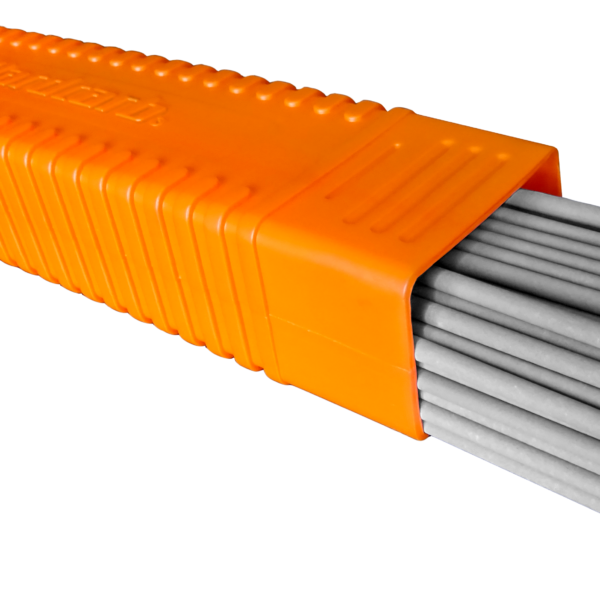Hardcarb 105


Iron base hardfacing alloy suitable for applications subject to high abrasion, pressure and impact as well as metal-to-metal wear. The alloy is particularly suited for hardfacing of edges and for regeneration of installed parts as it allows various welding positions to be employed. The weld deposit is magnetic and cannot be machined.
Weld deposit characteristics:
The martensitic weld metal contains finely dispersed hard carbides and borides ensuring an optimal balance between abrasion, friction and impact resistance. It is well suited for metal-to-metal wear under high pressures.
The weld deposit is magnetic and cannot be machined. Stress-relief cracks are normal and can be minimized by use of suitable preheat.
Recommended uses and applications
» dredge bucket teeth and front edges
» bulldozer blades
» scraper blades
» crusher jaws
» chutes
» conveyor screws
» top coats of crusher hammers
» ”in-situ” repair of installed wear parts
Additional info
Anti-wear suitability
| Metal-to-Metal friction Metal surfaces in relative motion forced into contact with or without lubricant. Degradation by the formation of micro-welds between the contacting surfaces. | Suitable |
| High pressure abrasion Wear by relative movement under pressure of mineral particles of suitable hardness, shape and texture to remove material from the metal surface, leaving superficial deformation. | Suitable |
| Cavitation Tearing out of grains from the metal surface by the formation and implosion of bubbles in a liquid in rapid motion. | - |
| Mechanical fatigue Fatigue and formation of cracks in surface regions due to tribological stress cycles that result in the separation of material. | - |
| Thermal fatigue Cyclic exposure to high temperatures leading to permanent deformation by alternate expansion and contraction. Alteration of the structure and properties of the material. | - |
| Hot oxidation Creation of a poorly adhering oxide layer that reforms constantly. Degradation by loss of material thickness. | - |
Workability
| Work hardening Work hardening is the process of making a metal harder and stronger through plastic deformation. When a metal is plastically deformed, dislocations move and additional dislocations are generated. | |
| Edge retention Suitability for creating sharp edges and retaining them during operation. | |
| Machining Machinability is the ease with which a metal can be cut (machined) permitting the removal of the material with a satisfactory finish at low cost. | Not possible. Only grinding possible. |